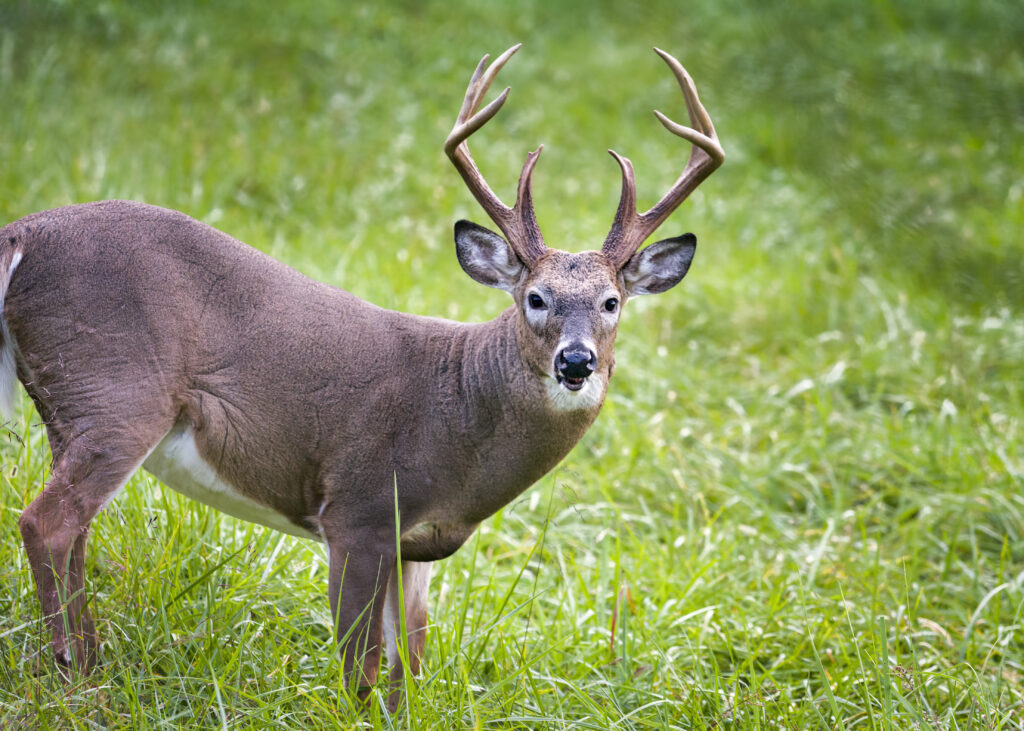FWC proposes rule change to further protect Florida’s deer population

Alert white-tailed buck feeding in the grasslands of Cade’s Cove, Tennessee
The Florida Fish and Wildlife Conservation Commission (FWC) has proposed a new rule change that will further support Florida’s efforts to protect the state’s deer population, the FWC announced on Friday.
To keep Chronic Wasting Disease (CWD), which is a fatal condition in deer species that attacks the brain and central nervous system, out of the state, the FWC proposes that importing whole carcasses or other high-risk parts from the deer family from outside the state be prohibited. The FWC suggested that the only exception be for deer harvested from property in Georgia or Alabama in which the Florida state line bisects.
According to the FWC’s release, currently, FWC Executive Order 19-41 “prohibits importing or possessing whole carcasses and high-risk parts from all members of the deer family from any place outside of Florida except for deer originating in Alabama or Georgia, provided certain requirements are met.”
Currently, hunters may import carcasses from anywhere in Florida’s bordering states, assuming they have an importation permit. The proposed change now makes it necessary that the Florida state line run through the property in which the deer was harvested.
“The draft rule amendment approved at FWC’s December meeting does not include the option to import whole deer or high-risk parts from properties in Georgia or Alabama, unless the property is bisected by the Florida state line and is under the same ownership,” the release states.
The FWC has been testing Florida’s deer population for CWD since 2002. To date, the disease has yet to make its way to the Sunshine State.
However, the disease has been detected in Mississippi and Tennessee, among 24 other states.
According to the FWC, “The abnormal proteins or prions that cause CWD can be transmitted through direct animal-to-animal contact as well as indirectly through contact with the saliva, urine, feces, blood and carcass parts of an infected animal. It can even spread through soil. Leaving CWD infected carcasses or carcass parts on the land can contaminate the soil and the CWD prions are capable of infecting other deer for years.”
The approved proposal will be re-evaluated by the Commission in February for final consideration.





